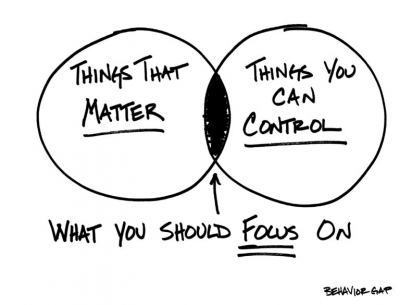Ten arguments against Open Science that you can win
Posted on 17 December 2020
Ten arguments against Open Science that you can win
By Malvika Sharan, The Turing Way - Community Manager, Open Life Science - Co-founder, SSI Fellow.
This post is part of our 10 year anniversary series.
Imagine, someone wants to argue with you about Open Science. (I know, who would do such a thing?) There is this person who is on a Zoom call with you (keeping it appropriate for 2020) and they bring up some really solid arguments against Open Science over a friendly discussion.
Background:
Open Science invites all researchers to share their work, data and research components openly so that others can read, reuse, reproduce, build upon and share them. Particularly in computational research and software development projects, open source practices are widely promoted. Unfortunately, making research components open doesn’t always mean that they can be easily discovered by everyone (Findable and Accessible), can be reproduced and built upon by others (Interoperable) or everyone will know how to use them (Reusable, inclusive). Applying FAIR and inclusive principles to Open Science requires time, intention, resources and collaboration, which can be overwhelming for many.
 Image by Behavior Gap for Windgate Wealth management
Image by Behavior Gap for Windgate Wealth management
So, of course, Open Science is not perfect. Therefore, it is not hard to point out things that are wrong with the Open Science practices, communities and culture. But, if you are reading this, and if you are passionate about Open Science like me, you would like to be prepared to respond to the arguments that may come up. This post is mostly about focusing on what you can do as an open researcher, while also committing to doing better in the future (always be learning!). I have compiled 10 arguments against Open Science that you can win:
- Open Science is not always open
That’s a solid start because let’s face it. It isn’t always open because it inherits systemic barriers that exist in science. Often our vision of openness is impacted by institutional recommendations made by a handful of decision-makers, which can limit our ability to use or engage with Open Science practices. Even when people put their research components out there, it doesn’t mean they are openly available to everyone due to limited access or permission. Instead of trying to prove your opponent wrong in this argument (which they are completely right about), you can respond by sharing how you are ensuring that your work is open for others. For example, show them how you share your work with an open license, open documentation, FAIR elements, platforms that are truly open beyond Europe and North America etc. To add an extra pinch of openness from your end, ask for their opinions on how you can try to make your work more open for them.
- Open Science has historically lacked diversity and exhibited a non-inclusive culture
It’s true. Open Science has a history of practising approaches that have institutionally given more advantages to privileged groups of people and have maintained inequality in many open research spaces. Open Science is truly open when it’s inclusive and equitable to a diverse group of individuals who are empowered to bring different skills and perspectives to conduct research collaboratively. Keeping this in mind, let’s agree with your opponent and tell them how you want to design your research to be inclusive by creating a welcoming and accessible community space, sharing skills, involving people in different kinds of tasks (not only computational) and welcoming their ideas.
- Current open culture is built on the Western mindset
Hard to contradict this one. Most discussions and actions in Open Science are driven by institutions and players from the West. This means that the focus remains on the development of tools, funding-models and infrastructure that often lack an understanding of underlying power structures, in turn influencing who is or isn’t able to participate in the development processes. This inadvertently excludes members from underrepresented groups and communities from low- and middle-income countries. To continue your friendly and civil arguments, you will need to make sure that you have spent some time learning about ‘contextualised’ or situated knowledge that explores how ‘all forms of knowledge reflect the particular conditions in which they are produced, including social identities and social locations of knowledge producers’. Assuming that you do practise this in your work, projects and communities - respond by sharing how you ensure that the decision-making process involves people with different lived-experiences, skills and backgrounds beyond the West (here are my notes for reference).
- My institute’s policy would never allow me to share my work openly
This is critical for academics who often lack job security and work on precarious contracts. It would be unreasonable to ask people who have less power influencing their institutional system to engage with Open Science when the result of their openness can cost them their job. Contractual arrangements between authors, publishers, universities, and funding organisations impact the Open Science routes the stakeholders can take while upholding the copyright and data protection regimes.
I have two thoughts on this one. First, most research work is funded by public money, hence it is our moral responsibility to make our scientific output available free of cost or restriction. If institutes are not supporting this, a strong case for a more permissive license can be made with the support of the appropriate legal entity in our organisations.
Second, of course, not everyone can or wants to influence policy at the institution level, therefore suggest that your opponent integrates open principles to their data management and publication plan when designing their projects and applying for grants to fund their research. This is actually a win-win situation, where your opponent can win their situation individually and you can sneakily win the argument.
- My work is not good enough to share
Now that your opponent is warming up to you as you have dismantled four really compelling arguments, you can see that this argument is not about Open Science anymore. People are genuinely unsure about their work or suffer from self-doubt/imposter syndrome. Show them how by sharing their work openly from the start, they can ask for feedback, integrate innovative ideas and improve the overall quality of their research. Reassure them that everyone has felt that way. Maybe share your personal story about how you got started if you also suffer from imposter syndrome.
- I will definitely get scooped
After the previous argument, we saw this coming, didn’t we? You only need to ask them to show you an example where someone got scooped because of sharing their work openly. I bet they won’t be able to find any proof for their statement. Maybe a good time to tell them how preprints have been extremely crucial to drive much cutting-edge research, including on COVID-19.
- I wrote this code for my data set only
This could be true about most things in research because we almost always write code to automate specific tasks for specific data sets. Moreover, making source code open is not as straightforward as posting a Tweet. Someone will need to create an online repository, add a license, and write documentation. Most people won’t do it if there is no incentive for doing that or if they don’t think it will be used by anyone. However, if it’s useful for them, it is useful for someone else too (any stack overflow user will back that statement). If you or someone you know have the time to offer support, you can win this argument by asking them if they would need any help putting their code online.
- I can’t maintain it, so why bother sharing
Well, not having the capacity to maintain their resource is surprisingly a good reason to share their research online. I strongly believe that collaborating with users of your resource is a good way to bring them in, upskill them and step out by handing over the responsibility to lead and maintain those resources. If they don’t want to take that path, then help them upload their work to Zenodo or Figshare so that they can release the latest version openly for others to use and get a DOI to receive citations.
- What if people judge my code and preprint?
It is very important to be objective in science. Not everything on the internet that is labelled scientific is true (surprise!). Part of being objective is judging research quality by transparency, reproducibility and reusability standards. Tell your opponent that by making their work open, they will take a step towards being more inclusive and creating more accessible research. This will allow more people to look into their code or preprint and ‘judge them in a good way’ to ensure the highest research quality. It takes some iterations before these processes start to make sense.
- My work will not be acknowledged and that’s not going to help my career
First of all, let’s not put that blame on Open Science alone. Unpaid work and unfair incentive systems in science continue to exist as a way to allow people to enter the workforce, gain new experience and advance their career. Though all of them might be true, they only enable people who can work for free to gain the benefit, disproportionately affecting members from marginalised groups who often can’t afford to work for free. It would be unfair to tell your opponent to play along with the system. However, point them to communities, projects and programs that welcome contributions from diverse members with various skill-levels, and provide meaningful incentives and value-exchange systems for practising openness. If you are feeling generous, tell them to check out The Turing Way data research community, Open Life Science mentoring program and Software Sustainability Fellowship.
There you have it! I hope you feel well-equipped to win these 10 arguments made against Open Science in a manner that can positively influence people to apply best practices into their work (and help you get out of an awkward situation). If not, then go with these 5-steps “Charle’s rules of argument” that almost always work, which says:
- Don’t go looking for an argument.
- State your position once.
- Reply one more time to clarify your position.
- Do not reply again.
- Spend time doing something fun instead - (self-care! Eat some ice cream, watch trashy TV, dance!).
Have more arguments that I didn’t discuss here? Share them by commenting under this GitHub issue or ‘openly’ tweet about it (tag me @malvikasharan).
Thanks to Yo Yehudi for sharing this list of reasons why scientists don’t share code, collected by the session attendees of Code is Science at Mozfest 2017.

